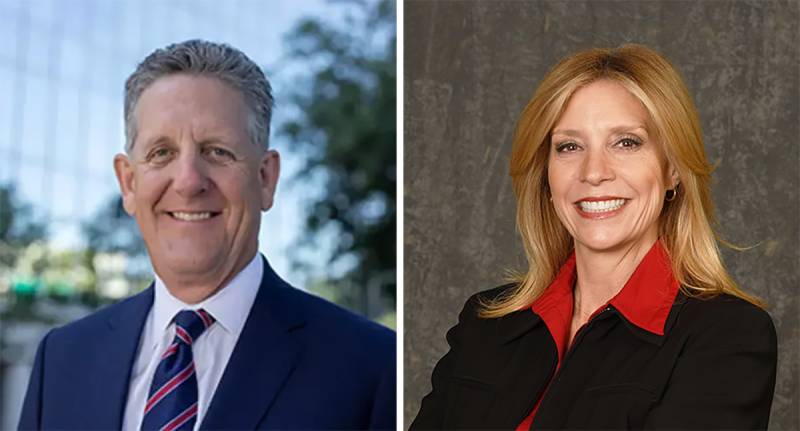“I feel like my breadth of knowledge, the things that I teach, the things that I do, my experience in the courtroom, make moving on to judge a natural progression,” she added “And I think I could be an asset to the bench.”
Boyarsky, the chief assistant district attorney, began working in the DA’s office in 1994 and told KQED he quickly became interested in prosecuting hate crimes.
“That’s actually the one main reason I wanted to become a prosecutor, is I wanted to stand up for people who were victimized simply because of who they were,” said Boyarsky, adding that he later also developed a knack for prosecuting sexual offenders, child molesters and rapists.
Boyarsky also ran Jeff Rosen’s successful campaign for DA in 2011 and was subsequently promoted by Rosen — who he calls his “best friend” — to his current position.
“It all ended up working out way better than I ever could have thought because I got to help transform and improve the District Attorney’s Office,” he said.
Boyarsky said becoming a judge feels like an excellent way to continue his work in public service.
“I want to try to make the community and the world better. And I owe that in light of the sacrifice that my father and his generation made for freedom, for democracy, for the rule of law, and to serve this country,” said Boyarsky, whose father fought in World War II and helped liberate Jewish people from Nazi concentration camps.
Boyarsky, who first ran unsuccessfully for judgeship in 2008, also applied for a governor’s appointment to the bench in 2007 and 2023 but was not selected either time. He said the latest application is still pending.
Each candidate has received a hefty tranche of endorsements: Both have gotten the support of roughly 30 current and former judges. Rosen and George Kennedy have also endorsed Boyarsky — the DA before him — along with several other current and former district attorneys throughout the state and a broad array of politicians and civil rights groups.
Stebbins, meanwhile, is endorsed by Chiarello — the judge vacating the bench — along with Dolores Carr, a former county DA. And although the unions representing officers of the county’s two largest law enforcement agencies — San José Police and the Santa Clara County Sheriff’s Office — endorsed both candidates, Stebbins underscores that she collected the sole endorsement of all other police unions in the county, along with the county union that represents both deputy district attorneys and public defenders.
“I think it speaks volumes as to how law enforcement thinks (the DA’s office is) doing that they do not support the second in command to the top law enforcement official in the county,” she said.


